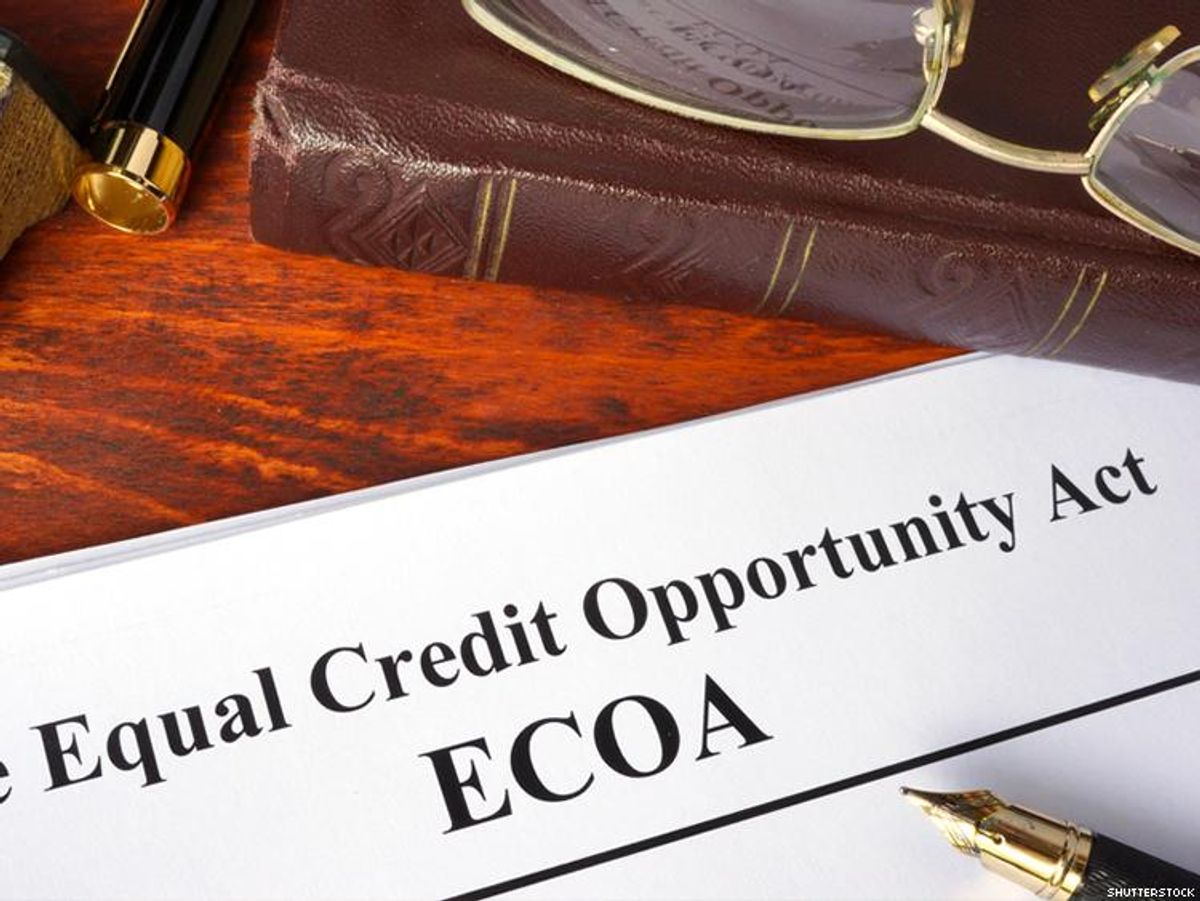LGBTQ people in America face widespread credit discrimination. Research shows that different-sex couples are routinely favored over same-sex couples when applying for mortgages, and that credit discrimination remains a serious barrier for queer and transgender people seeking to buy homes or open small businesses. In fact, at least one survey shows that LGBTQ people frequently report being denied a loan or line of credit on the basis of their sexual orientation, gender identity, or gender expression, even though they were otherwise qualified.
Unfortunately, credit discrimination could get even worse for LGBTQ people, as special interests wage an all-out campaign to hobble a federal agency that protects consumers from discrimination and predatory lending practices.
In the aftermath of the 2008 financial crisis, Congress created the Consumer Financial Protection Bureau, the first federal agency created to hold rogue financial institutions accountable when they rip off consumers. Since its creation, the CFPB has handled over 1 million complaints, taking on big banks that secretly charged customers for services they never requested, financial institutions that cheated people who were paying back their student loans, and lenders that discriminate against consumers.
Last year, the CFPB declared that the Equal Credit Opportunity Act, which bans sex discrimination in credit, also prohibits discrimination on the basis of sexual orientation and gender identity. The CFPB recognized, as many courts across the country have, that laws banning sex discrimination also ban anti-LGBTQ discrimination. And since the CFPB is responsible for enforcing the Equal Credit Opportunity Act, the agency offers a place where borrowers who are denied a mortgage, car loan, or business loan because of their sexual orientation and gender identity can turn to for help.
Credit discrimination contributes to disturbingly high rates of economic insecurity, including among LGBTQ people. Contrary to popular belief, LGBTQ people are disproportionately more likely to face poverty and homelessness than their straight and cisgender counterparts. One in five LGBT people living alone live below the poverty line, and transgender people are nearly four times more likely than the general population to have incomes under $10,000 a year.
Without access to credit, same-sex partners can't buy homes, transgender workers can't buy cars to get to work, and queer entrepreneurs can't start businesses. LGBTQ people of color face the compounding threats of discrimination on the basis of their race and national origin as well as their sexual orientation and gender identity, making it even harder to get ahead.
For all working families (LGBTQ people included), every dollar counts -- and the CFPB holds financial companies accountable when bad actors take dollars out of people's pockets through deceptive or predatory practices. The CFPB's track record speaks for itself. In its five-year history, the agency has returned nearly $12 billion to American consumers, including tens of millions in fines from discriminatory lenders that overcharged or denied loans to people of color. In short, the agency is protecting consumers by cracking down on destructive predatory lending practices and fighting discrimination that holds the LGBTQ community back. Now that the agency is working to combat LGBTQ discrimination, it can do ever more on behalf of American consumers.
Despite its success -- or perhaps because of it -- the CFPB is now under attack.
From January 2015 to September 2016, big banks and financial interests spent $2.3 million per day on lobbying and campaign contributions against the CFPB and Dodd-Frank, the law that created the agency. One of President Donald Trump's first executive orders directed the administration to loosen financial regulations. Meanwhile, Congress has already taken steps toward weakening the CFPB. Last year, the House voted to strip the CFPB's independent budget authority, and House Financial Services Chair Jeb Hensarling recently -- and falsely -- called the CFPB "the most destructive and dangerous" regulatory agency created during President Obama's first two years in office. Meanwhile, Sen. Ted Cruz has introduced a bill to eliminate the agency.
If banks, credit reporting agencies, and other financial companies don't want to be fined by the CFPB, they should simply clean up their act. Instead, well-funded special interests are spending billions to roll back financial regulation and gut a critical federal agency that investigates credit discrimination and dangerous predatory lending practices that could lead to the next crash. If they succeed, they will leave LGBTQ consumers even more vulnerable to discrimination that can bar them from getting the car loan they need to get to work or the home where they want to start their married life.
No one should be denied the chance to own a home or start a business because of who they are or whom they love. If special interests succeed in weakening or even eliminating the CFPB, LGBTQ people will lose federal recourse when denied these opportunities, while discriminatory or predatory financial actors are let off the hook. The CFPB has defended LGBTQ people; now our community must defend the CFPB.
SEJAL SINGH is the campaigns and communications manager of the LGBT Project at the Center for American Progress. JOE VALENTI is the director of consumer finance at the Center for American Progress.


















































































Viral post saying Republicans 'have two daddies now' has MAGA hot and bothered